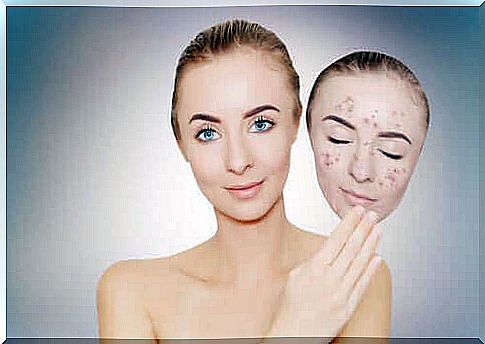Whitening Creams: How To Use Them?

Skin pigment spots are one of the most feared aesthetic problems. Unfortunately, sun exposure, aging, hormonal disorders, and many other factors increase the likelihood of skin discoloration. As a result, more and more people are choosing whitening skin creams.
These products contain ingredients that fade skin blemishes and make the skin look younger and smoother. However, to get good results, you need to know how to use these products correctly.
In this article, we’ll talk about how to incorporate whitening skin creams into your beauty routine.
What are whitening skin creams?

Whitening skin creams are cosmetic products that help to fade or completely remove pigment spots from the skin. Their active ingredients destroy the melanin in the area while stimulating cell renewal and moisturizing the skin.
According to an article in the NHS Foundation Trust, they may contain a combination of different drugs, the most common of which are hydroquinone, retinoids and corticosteroids. Each ingredient affects the skin differently.
Let’s take a closer look at this:
- Hydroquinone: This ingredient helps prevent the overproduction of melanocytes, or pigment cells.
- Retinoids such as tretinoin or retinoic acid help stimulate skin cell regeneration. In addition, they help hydroquinone to penetrate the skin.
- Corticosteroids help reduce and prevent inflammation of the skin. The most common of these is hydrocortisone.
In addition to the ingredients mentioned, whitening creams may contain vitamin C, kojic acid, adapalene gel, which is also a retinoid, or azelaic acid. Some of them even contain plant extracts such as lingonberry, arbutin, licorice, chamomile or mulberry.
How are whitening creams used?
First, it is important to keep in mind that whitening creams are not a quick fix for skin discoloration; managing them is, in fact, a time-consuming challenge. Preferably, consult a dermatologist to find out which treatments are best for you.
One important factor in getting good results is the consistent use of these products. The effects usually begin to show 6 to 12 months after starting use, and these creams should be used every day.
How are they used?
- Apply a thin layer of ointment on top of the pigment spot. This should be done in the evenings, always according to the instructions of your dermatologist.
- Hands should be washed well before and after use and skin contact with other people should be avoided for at least one hour after use.
- Avoid applying the cream near the eyes or around the eyelids. Sensitive skin around the eyes has its own products.
- Do not use whitening cream if your skin has scratches, burns or rashes.
Sunscreen: an ideal aid

If you want to prevent skin discoloration, you definitely need one product: sunscreen. According to the American Academy of Dermatology, sunscreen is a top priority when outdoors, even if it rains water or snow.
Preferably use sunscreen with a protection factor of at least 30. In addition, it should contain zinc oxide or titanium dioxide. If your skin is oily, “non-comedogenic” options can help keep your pores clean and avoid pimples.
Are whitening skin creams completely risk-free?
Depending on the ingredients, whitening skin creams may cause photosensitivity and should therefore only be used in the evening. Other side effects may include mild skin irritation and allergic reactions such as burning, itching and dermatitis.
If you experience any of these symptoms, stop using the product immediately and contact your dermatologist. The American Academy of Dermatology also warns against creams containing mercury and other substances harmful to the skin. For this reason, when choosing a product, you should make sure that it is approved by a dermatologist.









